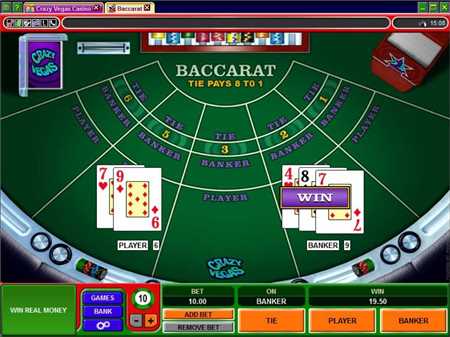

In the captivating world of card games, players are always in search of methods that can tilt the odds in their favor. Within this competitive environment, understanding the nuances of game mechanics and developing strategic approaches can significantly influence the outcome of each session. This exploration delves into key techniques that savvy players employ to improve their chances of success, all while enjoying the thrill of the game.
By focusing on specific choices and actions, participants can create a foundation for more fruitful experiences. This article sheds light on these invaluable tactics, aimed at helping players make informed decisions while navigating the complexities of their gameplay. By dissecting these methods, readers will gain insight into how to elevate their performance and embrace the excitement that comes with each hand.
As the numbers highlight, certain strategies can yield impressive returns over time, shaping the overall dynamics of the game. Comprehending how to leverage these options effectively opens up pathways to achieving favorable outcomes and enhancing your overall enjoyment. Join us as we embark on this enlightening journey into the art of playing smart and enhancing the thrill of each card deal.
Achieving success when playing card games requires a combination of skill, strategy, and understanding of the underlying mechanics. It is essential to adopt effective practices that increase the likelihood of favorable outcomes. By focusing on key aspects of gameplay and making informed choices, players can enhance their overall experience and profitability.
One of the foundational elements to consider is the selection of betting options that typically offer greater chances of success. By familiarizing yourself with the various outcomes and their respective odds, you can make choices that align with your financial goals. Prioritizing bets that have a higher probability of winning can be a game-changer.
Another critical factor involves managing your resources wisely. Setting a budget and adhering to it allows you to enjoy the game without the stress of potential losses. Additionally, knowing when to walk away is equally important; understanding your limits can preserve your capital for future endeavors.
Taking the time to study the rules and strategies specific to the game can also prove beneficial. Developing a keen sense of how the game unfolds and being aware of various tactics can alert you to opportunities that might otherwise go unnoticed. Engaging with experienced players and accessing reliable resources can further enhance your knowledge.
Finally, maintaining a calm and focused mindset during play is essential. Emotional decision-making often leads to impulsive actions that can undermine your efforts. Keeping a clear head allows for better judgment and more calculated risks. All these factors combined can significantly improve your potential for success at the card table.
The concept of return on investment in games of chance plays a crucial role in determining the potential outcomes for players. It gives an insight into how much one can expect to gain or lose over time. This section delves into the specific percentage that symbolizes the favorable odds associated with a particular gaming option.
This measurement can help players make informed decisions based on historical data and statistical analysis. A higher percentage indicates that the odds are more advantageous, making it an appealing choice for participants. Below are several key aspects to consider:
It’s essential to remember that while these figures provide a statistical outlook, individual outcomes in each session can still vary widely. Players should embrace strategies that align with their risk tolerance while being mindful of this important metric.
Ultimately, knowledge about the return rate empowers players to make choices that can lead to more enjoyable and potentially fruitful gaming experiences.
The concept of Return to Player is a fundamental aspect of gaming that serves as a guideline for understanding potential outcomes and profitability. This metric provides players with insights into how much they might expect to receive back from their wagers over time, creating a framework for evaluating different gaming options.
RTP is typically expressed as a percentage, indicating the proportion of wagers that will be returned to players in the long run. For instance, a game with a higher percentage suggests a greater likelihood of returning a larger share of the stakes, while a lower percentage indicates a higher house edge. Thus, players can use this information to make informed decisions about their gameplay.
Understanding this metric can significantly influence a player’s strategy. While no outcome is guaranteed in the world of chance, being aware of the RTP allows participants to choose games that align better with their risk tolerance and financial goals. In essence, this knowledge empowers players to navigate their gaming experiences more wisely.
Engaging in strategic plays at the gaming table can significantly influence the potential returns for participants. Understanding certain factors that elevate probabilities is essential for effective gameplay. One of the pivotal elements that can enhance overall profitability is the choice related to dealer roles in various card games.
House Advantage: The dealer’s position often reduces the house edge. This allows players to optimize their decisions, thus positively affecting the expected returns.
Card Distribution: The way cards are dealt can impact the flow of the game. A more favorable distribution tends to tilt the odds in favor of those who strategically follow the dealer’s moves.
Player Trends: Observing the dealer’s actions can reveal patterns. Players who adapt their strategies based on these observations can better align themselves with higher winning probabilities.
When participants focus on the dealer’s gameplay and the mechanics behind it, they can make informed choices that lead to greater efficacy in their own betting practices. Not only does this foster a deeper understanding of the game, but it also serves to elevate the overall percentage of returns that players can anticipate.
In conclusion, recognizing the implications of the dealer’s role can serve as a powerful tool for players wishing to improve their performance and, consequently, their returns. By being attuned to these dynamics, individuals can navigate the game with a higher level of confidence and insight.
Engaging in strategic approaches when wagering can enhance your overall experience and potentially lead to favorable outcomes. Understanding the dynamics of the game and applying specific techniques is crucial for those looking to make informed choices during their playtime.
Consistency is Key: One of the most effective methods is to maintain a consistent approach. By wagering on the same outcome repeatedly, players can capitalize on the statistical advantages that certain outcomes present over time.
Utilize Betting Systems: Incorporating betting systems, such as the Martingale or Fibonacci, can help in managing your stakes. These systems allow players to adjust their wagers based on previous results, which can potentially optimize their betting strategy.
Bankroll Management: Establishing a clear budget is essential. Players should define their limits and stick to them to avoid significant losses. This practice not only helps in maintaining financial control but also ensures longer gameplay.
Observe Patterns: While the game is based on chance, some players find value in observing trends. Keeping track of previous rounds can provide insights that influence future bets, although it’s important to remember that outcomes remain random.
Take Advantage of Bonuses: Many platforms offer promotions that can be used to your benefit. By leveraging bonuses, players can extend their play without increasing their risk, allowing for potentially favorable situations in which to wager.
By employing these strategies, individuals can navigate the game more effectively, potentially leading to an enhanced gaming experience.
When comparing two popular wagering options in a certain card game, one option consistently demonstrates a more favorable outcome for participants. This section will delve into the compelling reasons why one choice tends to be superior to the other, particularly in terms of return potential and overall strategy.
First and foremost, the likelihood of success is noticeably higher when selecting this advantageous option. Statistical analysis reveals that the chances of achieving a favorable result are significantly elevated. This can be attributed to the game’s intrinsic design, which offers a set of rules that favor one choice over the other.
Furthermore, the associated house edge plays a crucial role in this analysis. A lower house edge correlates directly to a greater probability of retaining funds over time. This means that players who opt for the more beneficial choice are likely to experience fewer losses in the long run, enhancing their overall gaming experience.
In addition to improved odds and reduced risk, participants can also enjoy other strategic advantages. For instance, the dynamics of rounding and the pacing of play can influence outcomes favorably when using the more advantageous selection. This approach can lead to a more engaging and rewarding experience.
Ultimately, understanding the disparities between these two options empowers individuals to make informed decisions, fostering a stronger gaming strategy that aligns with their personal objectives and preferences.
The presence of a financial charge on certain outcomes can significantly influence overall profitability in the game. This fee is typically applied to specific winning scenarios, impacting how players perceive their earnings. Understanding this element is crucial for effective strategy development and long-term engagement.
When considering overall returns, the effect of commissions varies based on the amount wagered and the frequency of wins. Players must factor in these deductions when calculating potential profits, as they can reduce the apparent effectiveness of successful plays. As a result, some may reconsider their approach to wagering and adjust their risk management strategies accordingly.
Additionally, the structure of the commission can shape player behavior, leading to adjustments in betting patterns and choices. Awareness of how commissions alter expected returns fosters a more informed decision-making process. This knowledge empowers players to navigate the game more strategically and can enhance their overall experience.
Ultimately, the implications of this financial aspect are critical in defining the overall playing strategy and potential outcomes, making it an essential consideration for anyone looking to engage in the game with insight and foresight.